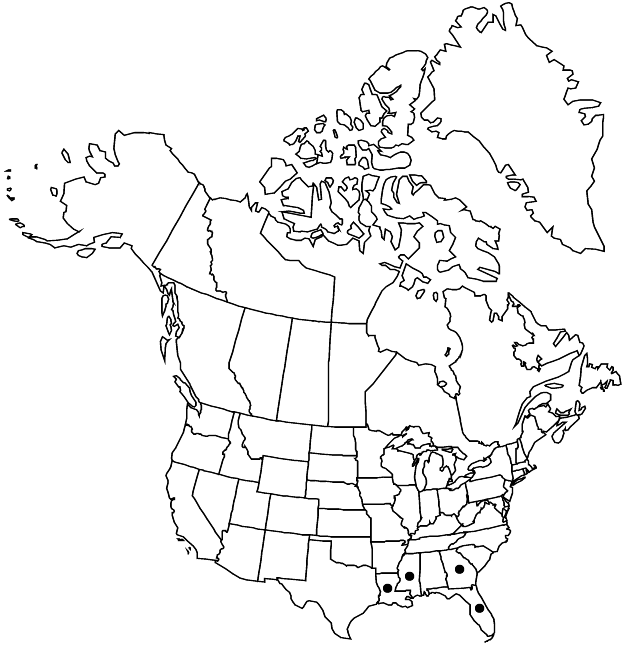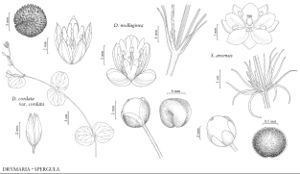Difference between revisions of "Drymaria cordata var. cordata"
FNA>Volume Importer |
imported>Volume Importer |
||
| (2 intermediate revisions by one other user not shown) | |||
| Line 1: | Line 1: | ||
{{Treatment/ID | {{Treatment/ID | ||
|accepted_name=Drymaria cordata var. cordata | |accepted_name=Drymaria cordata var. cordata | ||
| − | |accepted_authority= | + | |accepted_authority= |
|publications= | |publications= | ||
|basionyms= | |basionyms= | ||
| Line 19: | Line 19: | ||
|elevation=10-30 m | |elevation=10-30 m | ||
|distribution=Fla.;Ga.;La.;Miss.;Mexico;West Indies;Central America;South America;introduced in tropical areas of the Old World. | |distribution=Fla.;Ga.;La.;Miss.;Mexico;West Indies;Central America;South America;introduced in tropical areas of the Old World. | ||
| + | |introduced=true | ||
|tables= | |tables= | ||
|references= | |references= | ||
| Line 27: | Line 28: | ||
-->{{#Taxon: | -->{{#Taxon: | ||
name=Drymaria cordata var. cordata | name=Drymaria cordata var. cordata | ||
| − | + | |authority= | |
| − | |authority= | ||
|rank=variety | |rank=variety | ||
|parent rank=species | |parent rank=species | ||
| Line 43: | Line 43: | ||
|publication year= | |publication year= | ||
|special status= | |special status= | ||
| − | |source xml=https:// | + | |source xml=https://bitbucket.org/aafc-mbb/fna-data-curation/src/2e0870ddd59836b60bcf96646a41e87ea5a5943a/coarse_grained_fna_xml/V5/V5_4.xml |
|subfamily=Caryophyllaceae subfam. Polycarpoideae | |subfamily=Caryophyllaceae subfam. Polycarpoideae | ||
|genus=Drymaria | |genus=Drymaria | ||
Latest revision as of 22:10, 5 November 2020
Plants annual, herbaceous, glabrate to glandular-puberulent, often densely so in inflorescences, not glaucous. Stems prostrate and spreading, branched, rooting at some nodes, 20–60+ cm. Leaves opposite; stipules persistent, divided into 3–5 subulate to filiform segments, 1–2 mm; petiole 2–15 mm; blade orbiculate to reniform, 0.5–2.5 cm × 5–25 mm, base cordate to rounded, apex rounded to acute. Inflorescences axillary and terminal, mostly open, 5–15+-flowered cymes. Pedicels shorter to longer than subtending bracts at maturity. Flowers: sepals with weak veins arcing outward at midsection and ± confluent apically, lanceolate to ovate (herbaceous portion similar), 2–4(–5) mm, ± equal, apex acute to acuminate (herbaceous portion similar), not hooded, glabrous or with ± sessile glands; petals 2-fid for 3/4+ their total length, 2–3 mm, 1/2–2/3 times as long as sepals, lobes 1-veined, vein unbranched, linear, trunk absent, base abruptly tapered, apex rounded to acute. Seeds dark reddish brown, snail-shell-shaped, 1–1.5 mm; tubercles prominent, rounded. 2n = 24 (Africa, India), 36 (South America, Taiwan).
Phenology: Flowering year-round.
Habitat: Lawns, gardens, disturbed areas
Elevation: 10-30 m
Distribution

Introduced; Fla., Ga., La., Miss., Mexico, West Indies, Central America, South America, introduced in tropical areas of the Old World.
Discussion
Selected References
None.
